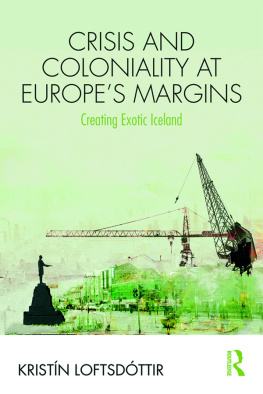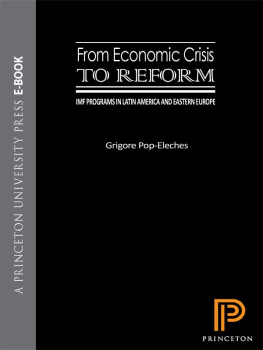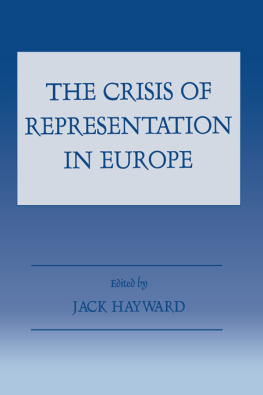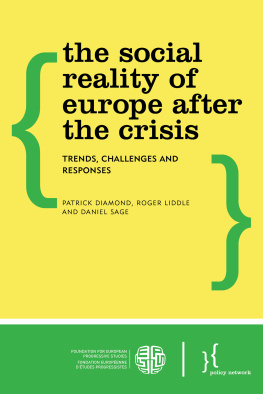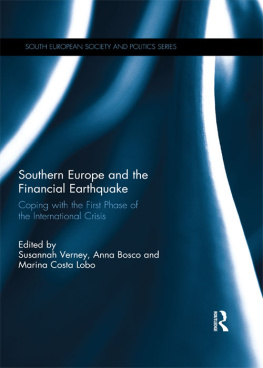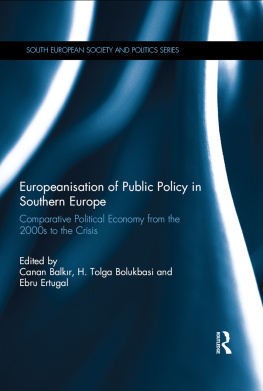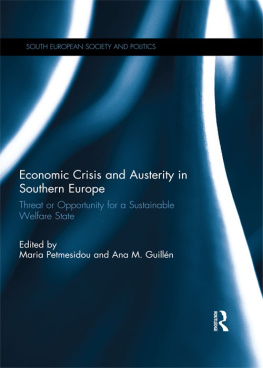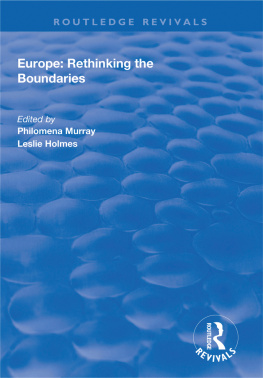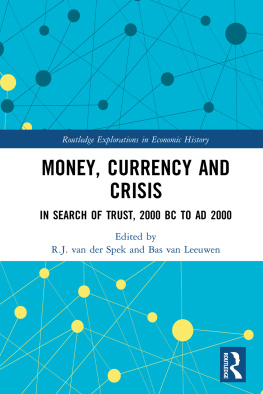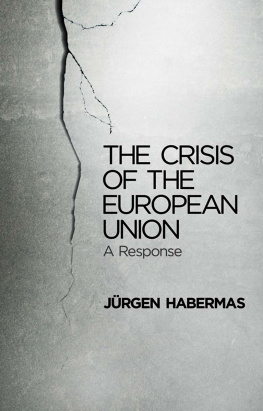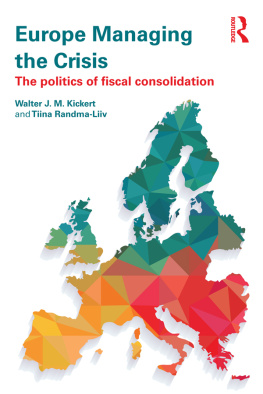MESSY EUROPE
EASA Series
Published in Association with the European Association of Social Anthropologists (EASA). Series Editor: Aleksandar Bokovi, University of Belgrade
Social anthropology in Europe is growing, and the variety of work being done is expanding. This series is intended to present the best of the work produced by members of the EASA, both in monographs and in edited collections. The studies in this series describe societies, processes and institutions around the world and are intended for both scholarly and student readership.
For a full volume listing, please see back matter
First published in 2018 by
Berghahn Books
www.berghahnbooks.com
2018 Kristn Loftsdttir, Andrea L. Smith, and Brigitte Hipfl
All rights reserved. Except for the quotation of short passages for the purposes of criticism and review, no part of this book may be reproduced in any form or by any means, electronic or mechanical, including photocopying, recording, or any information storage and retrieval system now known or to be invented, without written permission of the publisher.
Library of Congress Cataloging-in-Publication Data
A C.I.P. cataloging record is available from the Library of Congress
British Library Cataloguing in Publication Data
A catalogue record for this book is available from the British Library
ISBN 978-1-78533-796-3 hardback
ISBN 978-1-78533-797-0 ebook
Introduction
Kristn Loftsdttir, Andrea L. Smith, and Brigitte Hipfl
The economic crisis in Europe at the launch of the new millennium has coincided with a wider sense of crisis in other dimensions of social life. Economic perturbations have affected European countries in radically different ways, generating a growing sense of a future disrupted. They have also raised sharp debates about the relationships between European countries and their membership in the category Europedebates that have intersected with past inequalities and racisms, both within and outside the continent.
In this book, we use the economic crisis as a starting point to look at wider issues of race, gender, and national understandings of self and other in contemporary Europe. We critically examine imaginings of Europe within and in the aftermath of economic crisis, highlighting Europes historical association with whiteness and modern civilization, and explore how these are re-envisioned or contested within an era that increasingly seems to be characterized by crises of different kinds (Loftsdttir and Jensen 2014). We invited scholars to link their own research and analysis with the key questions posed here in order to provide case studies from different national contexts on crisis and European racialized identities and subject positions.
While economic crises are often theorized as purely economic issues orwithin European contextsproblems related especially to social welfare questions, this book offers a different perspective, one based on a longstanding tradition in anthropology and critical theory in which the economy is seen as an intrinsic part of society and thus as embedded in a larger nexus of social interactions and history (Schwegler 2009; Peebles 2010; Schneider 2002). As Stuart Hall stresses, No crisis is only economic (Hall and Massey 2012: 57). Criseseconomic or otherwiseare moments of potential change, but they can also be implicated in the reproduction of social relations or prevailing power struggles (Gluckman 1954; Hall and Masssey 2012). In fact, economic crisis can create opportunities for multinational corporations and institutions to move social power further towards neoliberal goals, thus creating new prospects for some but not all, as Klein (2007) has shown. However, crisis also has potential to serve as a platform for radical change or as an avenue for creating different forms of resistance (Boyer 2013).
In this introductory chapter, we situate the central question of the bookthe entanglement of crisis with whiteness and racewithin theoretical frameworks that have critically evaluated postcolonial engagements of the present. The collection constitutes a contribution to critical research on race and European identities by providing a nuanced sense of how racialized identities in contemporary Europe are played out in the crisis context. We explore and unpack what we term crisis talk, examining how such discourse motivates public feelings and affects, ultimately shaping bodies, boundaries and communities. We approach these questions from different disciplinary perspectives spanning the humanities and social sciences. While the books main perspectives come from anthropology, we also draw insights from sociology and media studies. We situate this book within critical perspectives acknowledging the world as postcoloniala perspective that has long been part of anthropological insights without necessarily being labeled as such (Loomba et al. 2005: 30). In contrast to scholars who claim that postcolonial perspectives are unable to grasp the changing power structures of the present (Hardt and Negri 2000), we share with Ponzanesi and Colpani (2016) the conviction that we need to investigate the after-effects of colonialism and how they are shaping current articulations of power.
Debates about Europes predicament and future often mobilize or touch upon reified conceptions of Europe, imagined as a fixed location inhabited by certain kinds of people. In this book we approach Europe differently, as a contested space and fluid construction with plural histories (Ponzanesi and Blaagaard 2011). This is made especially clear through empirically grounded case studies that elucidate specific understandings of self and other at specific times and circumstances. Coloniality is deeply saturated in our present, as Escobar (2007) and others have argued, serving as an underlying logic (Lee, Hongling, and Mignolo 2015: 187). These contributions emphasize how the articulation of this past and the salience of difference take shape in different European contexts within a time of turmoil. We ask how discourses and sentiments related to Europe and crisis draw upon past forms of categorization and evaluation while articulating with differences across the European continent. The title of the book, Messy Europe, is meant not only to emphasize Europes economic crisis, but to draw attention to these messy identities and subjectivities that are in tension while they continuously shift, intersect and contradict one another.
Crisis Talk, Crisis Europe
The term crisis has its origins in the Greek verb krin, to separate, choose, or judge (Koselleck 2006: 358). It developed distinct meanings in Greek legal, theological, and medical usages, but at all times the concept is applied to life-deciding alternatives meant to answer questions about what is just or unjust, what contributes to salvation or damnation, what furthers health or brings death (ibid., 361). As German historian Reinhart Koselleck writes, the very ambiguity of the term turned it into a key concept, and from the 1770s on it became a structural signature of modernity (ibid.: 374). It has certainly become an organizing metaphor in the twenty-first century, comparable to the salience of the term risk in the 1990s. For Mary Douglas the appeal of risk comes from its universalizing terminology, its abstractness, its power of condensation, its scientificity, its connection with objective analysis (2003/1992: 15). Similarly, crisis texts are a veritable industry today (Roitman 2014: 3). Crisis is used to qualify the nature of any number of events, from the humanitarian crisis to the energy crisis. As Roitman (ibid.: 3) observes, through the term crisis, the singularity of events is abstracted by a generic logic, making crisis a term that seems self-explanatory (see also Kosmatopoulos 2014; Loftsdttir and Jensen 2014).


